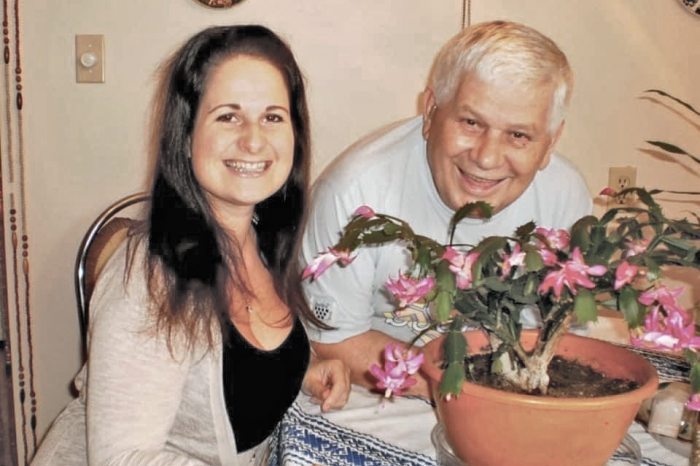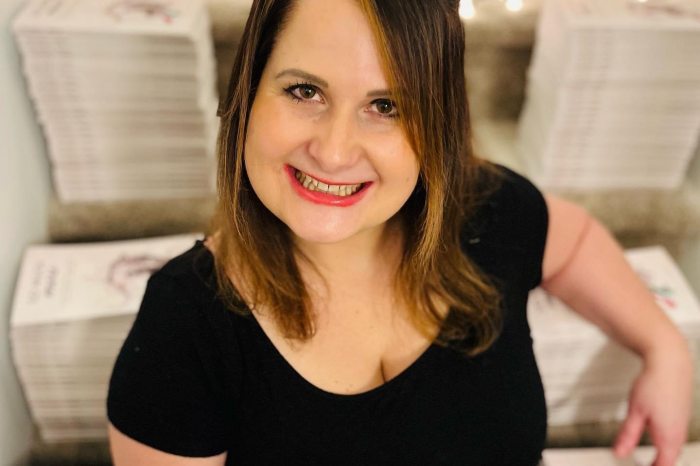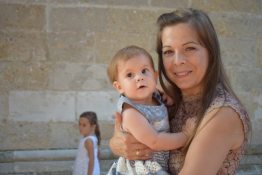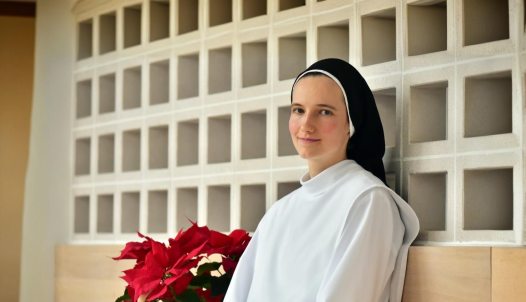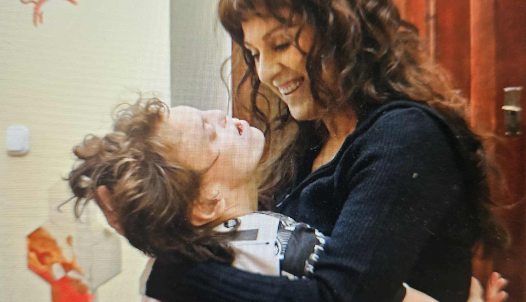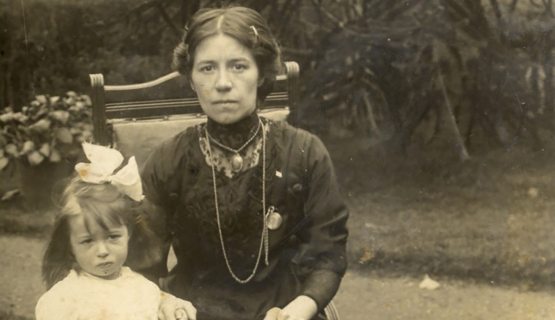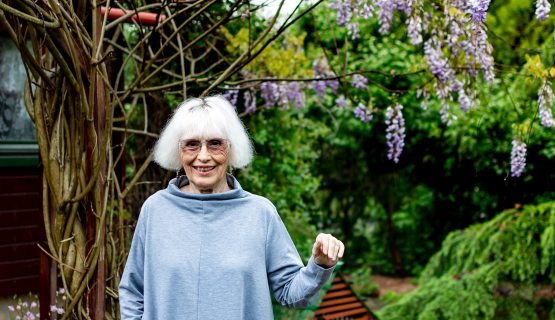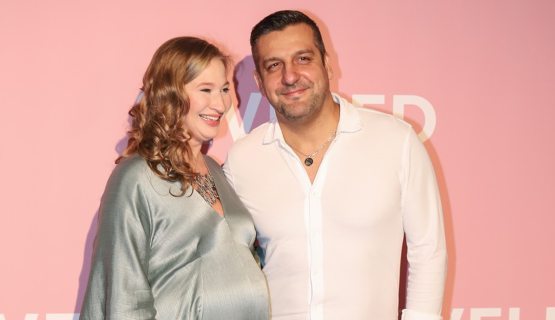”From revolution to pandemic - writing can heal multigenerational traumas,” states Cynthia Berenyi, the Canadian-Hungarian writer
”I didn’t even know who I was anymore, but I knew that was what I needed to find out. I was ready. I was ready to begin healing – to begin loving myself” – expressed Cynthia Berényi, Hungarian-born Canadian writer, and dance and drama teacher in her new book. Her book titled So Much More – A Multigenerational Memoir of Spiritual Liberation is an honest confession about finding one’s way, reviewing and processing the past, and opening up to a new beginning.
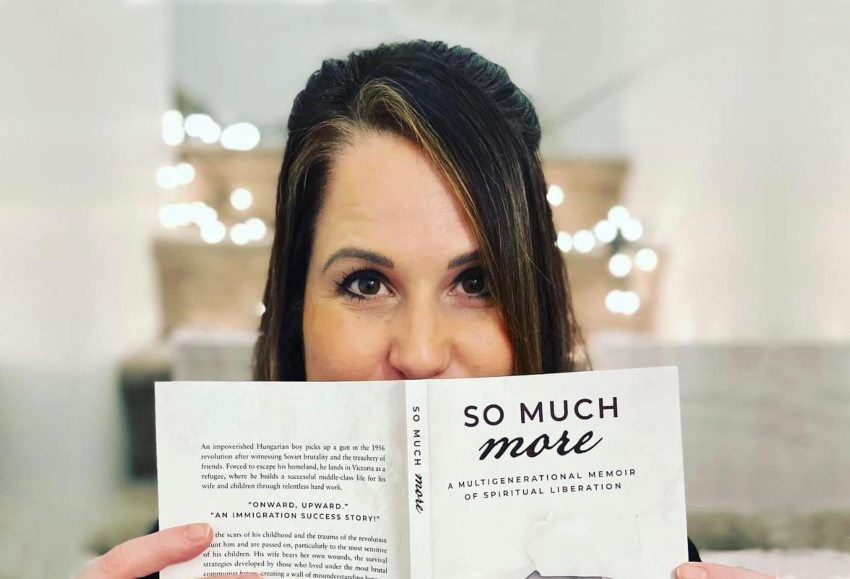
Cynthia was born in 1982 in Golden, a small town in the Rockies. After the revolution against the Soviet Regime, her father, Frank Berényi, had to leave his homeland, Hungary in 1956. Her mother followed her love twenty years later. The writer emotionally and honestly tells us about how she grew up as an immigrant family’s child in the ’80s and ’90s in Canada, her experiences when visiting Hungary as a teenager also later as an adult and her recognition of the traumas originated from her parents past and the affects to her own life.
The history of The Berényi Family is multilayered and diversified, experienced by all characters in their own way. In Cynthia's writing, she reveals her relationship with family: her father, who buries his painful memories within himself, works for the prosperity of his family and is away a lot, her mother, who tries to fit into a foreign environment and is often left alone with her children, her brother, who is sometimes seen as a competitor, sometimes as a partner in fate, and her rarely-seen grandmother who she feels close to her.
They all strive for security, love, and harmony, but the unprocessed traumas of the past and the conflicts, fears, and misunderstandings of the present prevent them from achieving these goals.
As the death of the beloved father approaches, family unity is finally born, and Cynthia overcomes the long mourning process and finds her own voice and path.
What inspired you to write this book?
I was inspired to write this book to honor my father and all the people who fought for freedom in The 1956 Hungarian Revolution plus all those who continue to fight for freedom today. I was inspired to share a sense of hope and inspire others to heal so they can live life fully.
Why did you choose this title for your book?
I choose the book title So Much More - A Multigenerational Memoir of Spiritual Liberation, because the book is about my father’s escape from Hungary during the revolution and so much more. It is about how that trauma impacted him and also how that impacted me and my life. There are many pieces in this book that everyone can relate to and there is so much more that can be found in every reading, even for myself!
How did you realize that there is a relation between the difficulties in your life and your relatives’ personal histories?
Not all my difficulties are in relation to my relatives’ personal histories, but some of them are. One part that was challenging for my father was to share his story and his voice fully. Same with my mother. When I asked my mother and her experience with the revolution and the details for my book, my mother responded: “the revolution happened, it was hard, we got through it and we never talked about it.” I realized that there were parts of my life that I felt were hard to share as well, such as my father's passing. Sometimes it feels easier to push things down, especially if they are hard to deal with, but these hardships always linger in the background of all we do.
I watched this with my father and saw at the end of his life, what it means to fully be free of burdens, to heal, to truly let love in, and for life to be amazing.
I had to do my own healing, which meant sharing my voice authentically.
Reading the story of your birth, I felt the difficulties your mother faced when having children in a foreign environment.
A year and a half before I was born, my mother had a miscarriage, contracted an infection, and almost died from it. I think the fear and sense of loss stemming from that trauma was deeply rooted in my mom and maybe was passed down to me as well. I arrived prematurely and was a jaundice baby, so I was put in an incubator. One day the nurses forgot to put my eye shield back on and my mom screamed in panic as she didn't speak English and couldn't explain to them what was wrong. In the end, my dad had to come back to the hospital and he resolved the situation. I think this is a good example of how challenging it was for my mother during her early days in Canada.
In your book, the painful feeling of rejection appears as a kind of family legacy.
Unfortunately, my father experienced this many times: he didn't know his father, he had no relationship with him, and when he was four years old, my grandmother sent him to her relatives, who made him work on a farm. He was rejected by his youthful love, and his marriage ended in divorce. The depressing experiences gained during the revolution also accompanied him throughout his life, preventing him from being able to let himself go completely spiritually. This also affected me, as I could rarely feel liberated and safe. My mother didn't get the love and attention she needed from her father either, and during our upbringing, her own desires and ideas had to be pushed to the background. For example, she was only able to implement her business after the divorce, because my father insisted that he be the only money earner in the family.
Although my parents loved us and gave us everything, I often felt that my emotional needs, and thus a part of my personality, were being rejected.
You also faced the dilemma that every child faces: can I have negative feelings towards my parents, and at the same time not feel bad for that and also be grateful for them?
Yes, for example, I learned from my dad to stand up for myself and speak up if I don't like something, but he didn't take it well if I did this to him or my mom. When I was little, I felt that my family was happy when I was smiling and going with the flow. I tried to live up to it, so I suppressed my negative feelings. In my teenage years, of course, I clashed with my mother many times and my parents could not handle this. Later, I understood that the tensions did not arise because my parents didn't love me or didn't care about me, but because they also had to work on their own difficulties. This realization led me to forgive and build more loving relationships and find gratitude for my family and acceptance of them and myself.
Have these hardships prevented you to live a life of fulness?
At times, I have held back parts of myself by putting on masks to fit in with others and society, which were not authentic and did not truly represent who I really was. Although it was hard to share so freely, this writing is my truth, and
finding my voice and sharing fully has allowed me to accept and connect to myself fully and therefore allowed me to accept and connect to others more fully as well.
What other methods did you use for healing yourself from transgenerational traumas than writing?
Journal writing has been the most therapeutic way for me to explore my thoughts and ways of being. I have also connected with healing modalities such as cranial sacral therapy, talk therapy, EMDR, and Emotional Freedom Technique/tapping.
What does it mean for you to be Canadian? What does it mean for you to be Hungarian?
To be Canadian means to have a fresh start and a sense of freedom, which my father fought for. Being Hungarian means family, my roots, and my blood. I consider myself both Canadian and Hungarian and feel very lucky to have the background and status of both.
Cynthia finished her manuscript, which she had been working on for 10 years, during the pandemic. She said it took her that long to muster up the courage to share her story.
”When we no longer want to pretend anymore that we are fine and everything is alright, then the possibility to accept and heal opens up to us” – says the writer, for whom the journey to the past showed the way to a happier future.
Cynthia is my cousin, so our families' stories interact at some point. For me, it was a strange and uneasy feeling to read the book, to "meet" characters that I also know. I would like to express my gratitude to Cynthia for using her work to memorialize those family members who are no longer with us.
The book So Much More – A Multigenerational Memoir of Spiritual Liberation is available in English on Amazon and also on the writer's own website.
